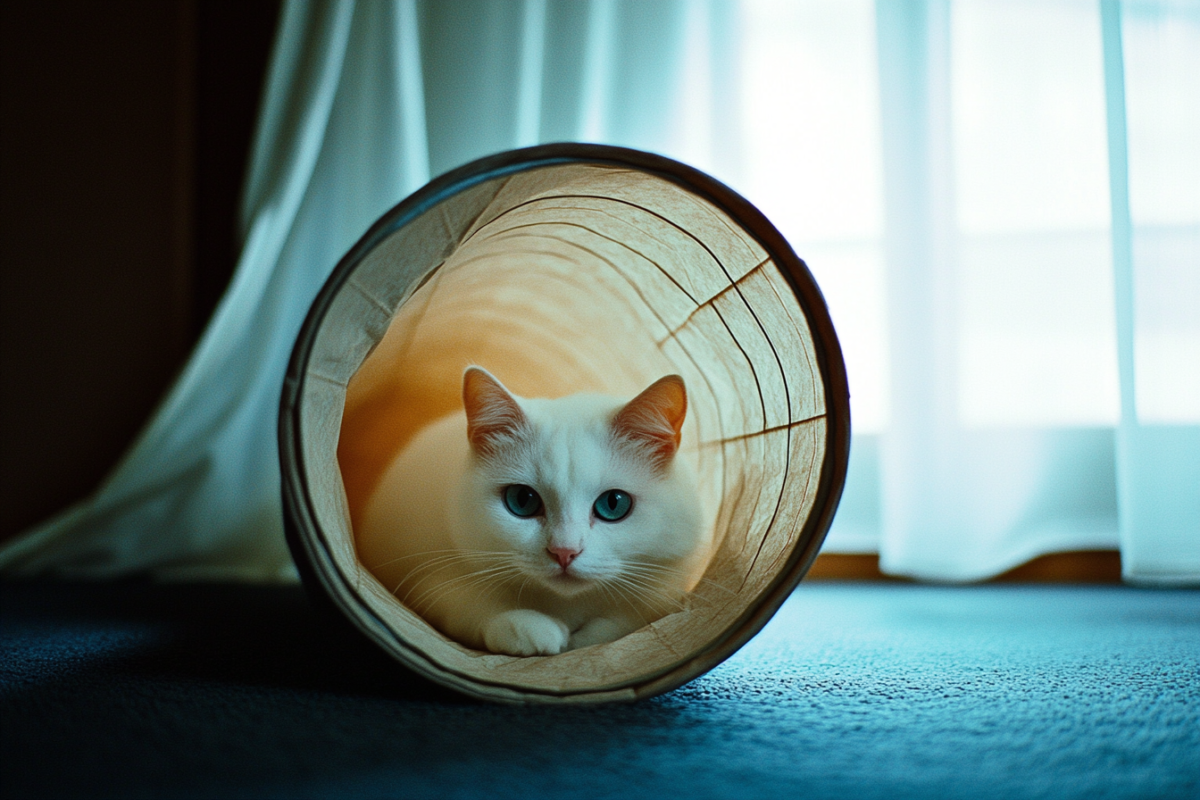
Description: In this article, we will explore the reasons why your cat may be hiding in the closet. From understanding feline behavior to potential health issues, we will help you decipher what may be causing this behavior and how to address it.
Why is my cat hiding in the closet?
Have you noticed your feline friend retreating to the closet more frequently? Cats often seek out enclosed spaces like closets for various reasons. One common cause is stress or anxiety. Cats are known for their need for security and comfort, and hiding in a closet can provide a sense of safety and privacy.
Another reason for this behavior could be illness or pain. Cats are masters at disguising their discomfort, and they may choose to hide in a quiet and secluded area like a closet when they are not feeling well. It’s essential to monitor your cat’s behavior and look for other signs of illness, such as changes in appetite or grooming habits.
How can I help my cat feel more comfortable?
To help your cat feel more at ease and prevent them from hiding in the closet, consider creating safe spaces throughout your home. Providing cozy beds, cat trees, and hiding spots can give your cat alternative options for relaxation and security. Additionally, engaging in interactive playtime and regular grooming sessions can help reduce stress and strengthen your bond with your feline companion.
It’s also crucial to address any potential stressors in your cat’s environment. Changes in routine, new pets, or loud noises can all contribute to anxiety in cats. By identifying and addressing these triggers, you can create a more peaceful and harmonious living space for your cat.
Is my cat hiding in the closet a sign of a health issue?
While occasional closet hiding may not necessarily indicate a health problem, persistent or sudden changes in behavior should not be ignored. If your cat is spending a significant amount of time hiding in the closet or showing other concerning symptoms, it’s best to consult with your veterinarian.
Health issues such as urinary tract infections, dental problems, or arthritis can manifest as changes in behavior, including hiding. Your vet can perform a thorough examination and recommend appropriate treatment to address any underlying medical issues.
How can I encourage my cat to come out of the closet?
Patience and understanding are key when helping your cat feel more comfortable and secure. Avoid forcing your cat out of the closet or punishing them for seeking refuge in that space. Instead, gently encourage your cat to explore other areas of your home by offering treats, toys, and positive reinforcement.
Creating a stimulating and enriching environment with plenty of opportunities for play, exercise, and social interaction can help boost your cat’s confidence and reduce their reliance on hiding in the closet. Remember to respect your cat’s need for solitude and provide them with safe spaces to retreat to when they need a break.
What should I do if my cat’s hiding behavior persists?
If your cat continues to hide in the closet despite your best efforts to address the underlying cause, it may be time to seek professional help. A behaviorist or certified feline expert can conduct a thorough evaluation of your cat’s environment, behavior, and overall well-being to identify potential triggers and develop a customized treatment plan.
Remember, every cat is unique, and what works for one may not work for another. By seeking guidance from a qualified professional, you can gain valuable insights into your cat’s behavior and take proactive steps to improve their quality of life.
Conclusion
Understanding why your cat is hiding in the closet requires careful observation, patience, and empathy. By considering the various factors that may contribute to this behavior, you can better support your cat’s emotional and physical well-being. Remember to prioritize your cat’s comfort and security, and seek professional help if needed to address any underlying issues.
FAQs
1. Can I punish my cat for hiding in the closet?
No, punishing your cat for hiding in the closet can increase their stress and anxiety. Instead, focus on creating a positive and supportive environment to help your cat feel more comfortable and secure.
2. How can I tell if my cat is in pain?
Watch for subtle changes in your cat’s behavior, such as decreased appetite, vocalization, or reluctance to move. If you suspect your cat is in pain, consult with your veterinarian for a thorough evaluation.
3. Is it normal for cats to hide in the closet?
Hiding in the closet can be a common behavior for cats, especially when they are feeling stressed or seeking a quiet space. However, prolonged or excessive hiding may warrant further investigation.
4. Should I try to force my cat out of the closet?
Avoid forcing your cat out of the closet, as this can increase their fear and anxiety. Instead, provide gentle encouragement and create a supportive environment to help them feel more secure.
5. How can I help my cat adjust to a new home and prevent hiding in the closet?
Gradually introduce your cat to their new environment, starting with a small space and gradually expanding their territory. Provide plenty of familiar comforts, such as bedding and toys, to help them feel more at ease.
